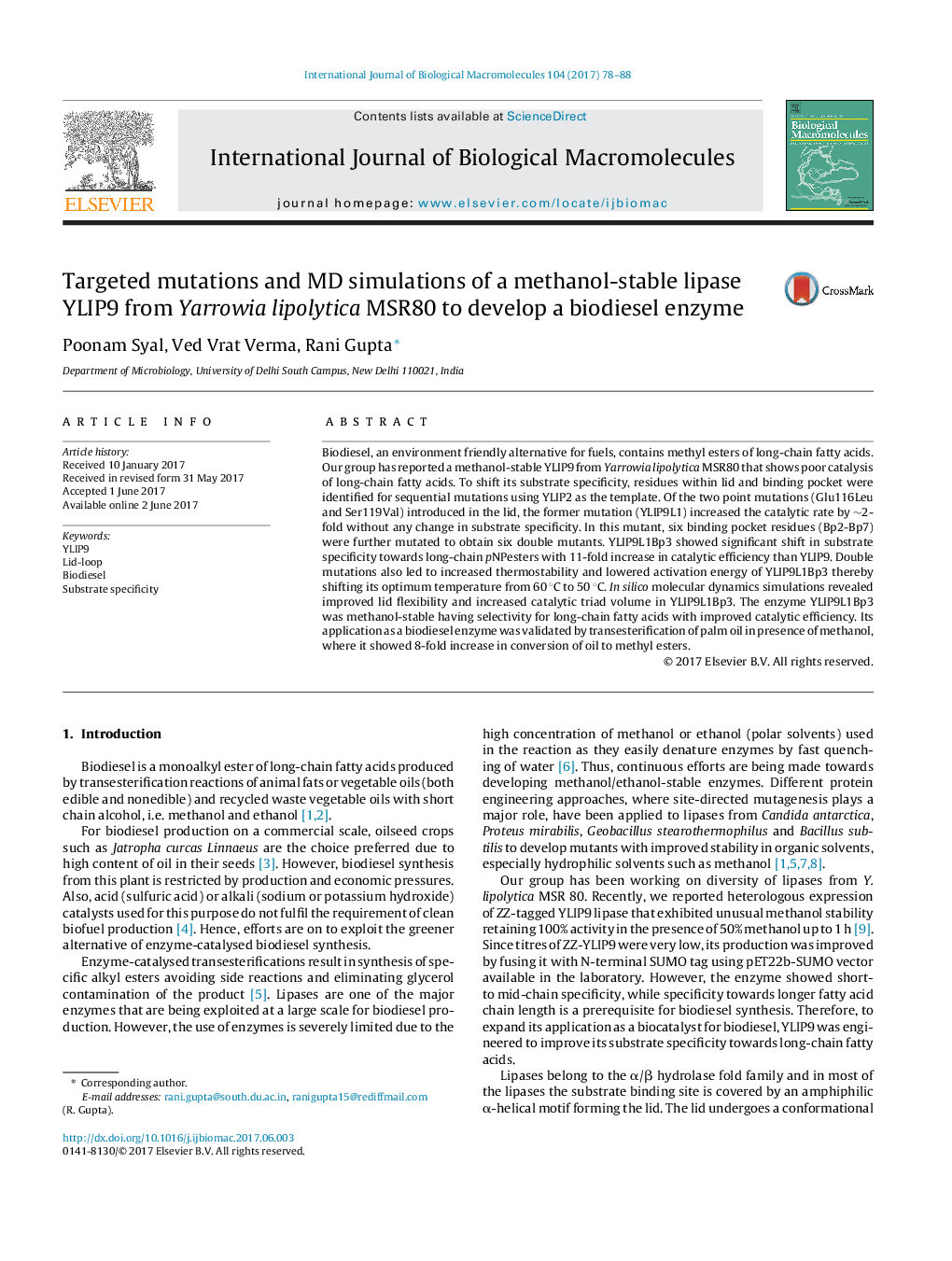| Article ID | Journal | Published Year | Pages | File Type |
|---|---|---|---|---|
| 5511626 | International Journal of Biological Macromolecules | 2017 | 11 Pages |
Abstract
Biodiesel, an environment friendly alternative for fuels, contains methyl esters of long-chain fatty acids. Our group has reported a methanol-stable YLIP9 from Yarrowia lipolytica MSR80 that shows poor catalysis of long-chain fatty acids. To shift its substrate specificity, residues within lid and binding pocket were identified for sequential mutations using YLIP2 as the template. Of the two point mutations (Glu116Leu and Ser119Val) introduced in the lid, the former mutation (YLIP9L1) increased the catalytic rate by â¼2-fold without any change in substrate specificity. In this mutant, six binding pocket residues (Bp2-Bp7) were further mutated to obtain six double mutants. YLIP9L1Bp3 showed significant shift in substrate specificity towards long-chain pNPesters with 11-fold increase in catalytic efficiency than YLIP9. Double mutations also led to increased thermostability and lowered activation energy of YLIP9L1Bp3 thereby shifting its optimum temperature from 60 °C to 50 °C. In silico molecular dynamics simulations revealed improved lid flexibility and increased catalytic triad volume in YLIP9L1Bp3. The enzyme YLIP9L1Bp3 was methanol-stable having selectivity for long-chain fatty acids with improved catalytic efficiency. Its application as a biodiesel enzyme was validated by transesterification of palm oil in presence of methanol, where it showed 8-fold increase in conversion of oil to methyl esters.
Keywords
Related Topics
Life Sciences
Biochemistry, Genetics and Molecular Biology
Biochemistry
Authors
Poonam Syal, Ved Vrat Verma, Rani Gupta,
